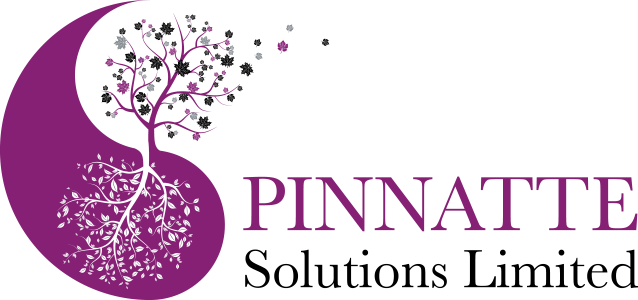The Good Recruitment Campaign Blog
Introducing the Good Recruitment Campaign Blog
With over 1000 experienced In-House Recruitment and HR professionals taking part in the Good Recruitment Campaign, the GRC community is full of insights and unique perspectives on effective hiring strategies. We are therefore publishing this blog to help us share the community’s knowledge on talent, leadership, career development and all things recruitment.
An interview with Susie Ankrett, Director, Plum Personnel Ltd
Starting as a medical secretary at a university health centre, I rose through the ranks and eventually became a key member of the senior management team. Like so many of my colleagues in the recruitment industry, a chance remark of “You’d be good in recruitment” led me to starting a recruitment company with my business partner in the heart of Solihull town centre.
A brief history of Plum Personnel
Since 2001, Plum Personnel has provided both temporary and permanent roles to organisations across different sectors, ranging from large internationals to SMEs. Our values are firmly based on the foundations of integrity and ethical recruitment, complemented by our absolute commitment to adding value and to achieving high standards of compliance and customer service. We’re proud to have been the first UK recruitment company to achieve Diversity Assured accreditation.
What are the main challenges you face when working with clients?
Most of our work is because of building strong relationships with clients and being their trusted recruitment partner. This takes time, commitment and dedication. We do not work on a transactional basis – and enjoy working with those clients who will spend time investing in our relationship.
What is the most important element for an effective supplier-client partnership?
It’s about relationships. For us, the focus is about developing and maintaining a relationship. We must gain trust through listening to their needs and concerns and getting involved with the organisation as their trusted recruitment partner. The best relationships have evolved and grown when they’re based upon both a contractual and a collaborative approach.
How would you improve your work with clients? What tools do you need? If you had to request one thing from your clients, what would it be?
Our best relationships – and long-term successes – have been with clients who keep us in the loop with their workforce planning. This gives us time to recruit the right person and for the client to give us prompt and honest feedback. The better we understand their business needs, the better we can respond with the people who are the right ‘fit’.
When working with a client for the first time, we will agree either a project plan or a set of appropriate SLAs and manage their expectations. We welcome the opportunity to advise them of local trends and to give them alternative ideas about who they recruit to ensure they have a more diverse team. One thing I want from both clients and candidates is feedback about whether there is anything we could have done better or differently. Our business must be designed and delivered upon listening to what our clients need and not what we think they want. This gives us the chance to reflect on how we can do better.
How does your recruitment strategy ensure your clients are positioned as an attractive place to work/ are an employer of choice?
We love to get to know our clients. We will always visit their premises and meet with the line manager where possible. This gives us the chance to discover their individual style of management, meet the team and see what isn’t on the job description but is key to their decision-making. It also gives us the chance to offer feedback about their expectations and discuss the local market. This enables our team to talk about the role in depth describe the people they’ll be working with and ‘paint the picture’ of their future opportunities.
What do you think will be the biggest change in recruitment in the coming years? How will that impact your working relationship with clients?
The biggest impacts in the world of work are the impact of technology and the changing and differing expectations of the mature and emerging workforce. Organisations are having to rethink their structure, leadership and how they manage people and with automation and speed of change they are having to be more agile than ever to respond.
The style of leadership and management must also respond to the needs of the different generations in the workplace. This will impact our working relationship with clients in many ways. Our priority is managing client expectations. We need to help clients understand how the workplace has changed, the behaviours of jobseekers, time scales, interview processes and how they can improve their recruitment strategies. We do this on many different levels. Our loyal clients receive industry updates, REC Research reports, invitations to HR conferences and regular review meetings to help them stay in touch with the changing job and people market.
We offer our services in assisting them to review their hiring processes and criteria and help prepare job descriptions and suggest best practice for interviews and assessment. We can advise and offer our ‘added value’ services, like preparing psychometric profiles rather than hiring based on ‘likeability’.
How and why have you used the Good Recruitment Campaign?
We used the GRC every day! Its logo is on our website, is included in our marketing materials and referred to in our conversations with clients. We promote it at every opportunity. When the GRC was launched, we held an event and invited local HR professionals along. This resulted in Plum Personnel being chosen as the recruitment partner for a large bank we had never worked with before.
We have strongly referenced the GRC in our 2017 HR Conference as well as being invited to talk to CIPD and ACAS members. We’ve used the GRC Charter to ensure our own practices are well aligned. If we’re advocating it to clients, we wanted to ‘feel it’ for ourselves. This year we reviewed our own customer journey for candidates and clients and identified ways that we can improve.
Through sharing and offering the REC toolkit we have engaged HR professionals in conversations about recruitment and moved away from pure transactional relationships.





